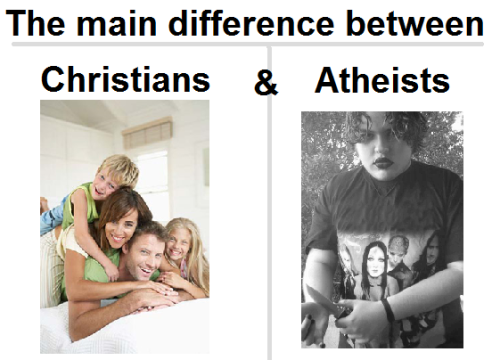Well, WE FUCKING DID IT! Do you like how I include you in this, saying "we" even though I've done literally all the work? Whatever. I'm too elated to care right now. IT'S OVER! IT'S DONE! THE BIBLE IS READ!
In the next few days I will attempt to write something conclusive, a sort of coda for this project, but right now I'm just going to give you a good old fashioned entry. Revelations is an INSANE FREAKING BOOK and deserves some attention.
When we left yesterday, Zombie Jesus Lamb had just appeared from nowhere and was preparing to open up the seven seals. Upon opening the first four, different colored horses appear, each whom symbolize a different element of the earth's impending destruction. The fifth seal causes martyrs to appear under the altar... okay... And the sixth seal causes a big stinkin' EARTHQUAKE! The imagery is totally insane, with "stars of the sky [falling] to the earth...[and] the sky [vanishing] like a scroll that is being rolled up" (Revelations 6:13-14). How cool is that?
In chapter 7, 144,000 people are chosen -- or "sealed," since we seem to really love that word -- to be servants of God, and then the multitudes line up in front of God's throne. Then the seventh seal is opened, at which point all hell truly breaks loose; there are "peals of thunder, rumblings, flashes of lighting, and an earthquake" (Revelations 8:5). Seven angels blow trumpets in succession, each of which causes people to die in different gruesome ways; through this "first woe," a third of earth's population is killed.
The imagery in Revelations, as I've already said, is so damn cool. John must have taken a ton of LSD before he wrote this. In chapter 10, an angel "wrapped in a cloud, with a rainbow over his head, and [a] face like the sun, and his legs like pillars of fire" (Revelations 10:1) gives John a little book, which he instructs him to EAT, then scamper off and make more prophecies. Like the good Christian soldier he is, John consents, noting that the book tasted GREAT but didn't agree with his tummy.
John goes off to measure the altar in the temple -- because when in doubt, measure stuff -- and while he is on his way over, the second "woe" occurs. The seventh angel blows his trumpet and voices declare that "the kingdom of the world has become the kingdom of our Lord and of his Christ" (Revelations 11:15), and God's "temple" in heaven is opened.
In chapter 12, "a woman clothed with the sun, with the moon under her feet, and on her head a crown of twelve stars" gives birth to a son, but a dragon appears in the sky and tries to eat him. Fortunately, both of them escape, the child going to God and the woman fleeing into the wilderness. Meanwhile, the angels wage war against the dragon, who we find out is named Satan! He is thrown from the heavens to earth along with his pals, where he pursues the woman, but she sprouts wings and is able to escape. The dragon gets so pissed that he decides to wage war with the rest of humankind.
Chapter 13 gives us a nifty description of two of Satan's evil monster pals, then in chapter 14 the narrative shifts back to our friend THE LAMB, who is standing on Mount Zion with the redeemed people. Some angels flutter around telling people to worship God and not Satan, although I have to say that if I was faced with a choice between a cool red dragon and a scary seven-eyed lamb, I'd probably go with the former. Satan sounds like Charizard!
After this, the angels decide that they haven't caused enough havoc, and drop seven golden bowls onto the earth. These cause seven more horrific plagues, the third "woe."
While all this is going on, John goes for a pleasant stroll on the beach and sees a prostitute. At first he's like, "Whoa, look! A prostitute!" but an angel says to him, "Why do you marvel? I will tell you the mystery of this woman, and of the beast with seven heads and ten horns that carries her" (Revelations 17:7). The prostitute apparently represents Babylon, and each of her attributes are some symbol of earthly sin. In chapter 18, Babylon is destroyed, and everyone is super bummed.
They get over it quickly, however, and chapter 19 is devoted to praising God, who "has judged the great prostitute who corrupted the earth with her immorality" (Revelations 19:2). Hooray! All is well! John's angel friend tells him, "Blessed are those who are invited to the marriage supper of the Lamb" (Revelations 19:9). In his enthusiasm and fervor, John starts to worship the angel, but the angel is like, "Dude, cut it out, I'm just a servant of God too you know." They are spared any kind of awkward aftermath, because at this point a white horse appears and throws some monsters into a lake!
This is a great story!
Anyway, Satan gets tied up for a thousand years, during which Jesus reigns happily. After the thousand years, Satan is released and tries to fight, but his efforts are in vain and he is thrown into a lake of sulfur and fire. It is noted that, "if anyone's name [is] not found written in the book of life, he [is] thrown into the lake of fire" (Revelations 20:15).
I guess this refers to JEWS and HOMOSEXUALS, among others.
Chapter 21 gives us a dazzling description of the new heaven, new earth, and new Jerusalem, which radiates "like a most rare jewel, like a jasper, clear as crystal... [and] has no need of sun or moon to shine on it, for the glory of God gives it light, and its lamp is the Lamb" (Revelations 21:11-22).
The LAST CHAPTER of the whole freakin' bible tells us to get psyched, because Jesus ordained all this stuff and it's going to happen any day now: "Behold, I am coming soon," Jesus says. "Blessed is the one who keeps the words off the prophecy of this book" (Revelations 22:7).
Wow. Golly gee. That was quite the tale! I suspect it will take me a little while to process all that I read. For the time being...
LET'S PARTY!!!!







